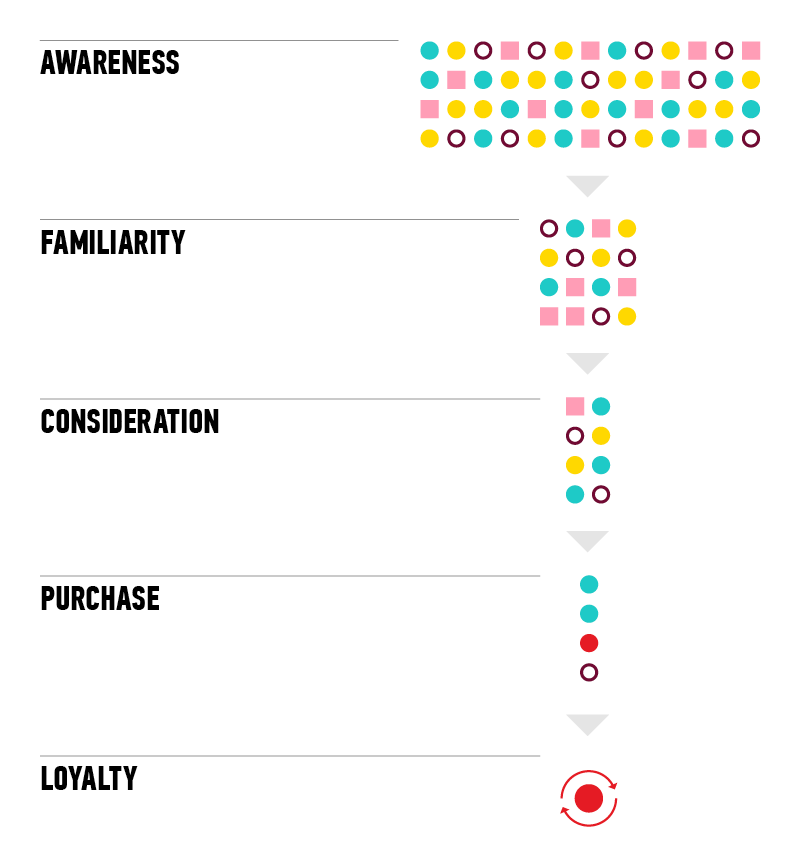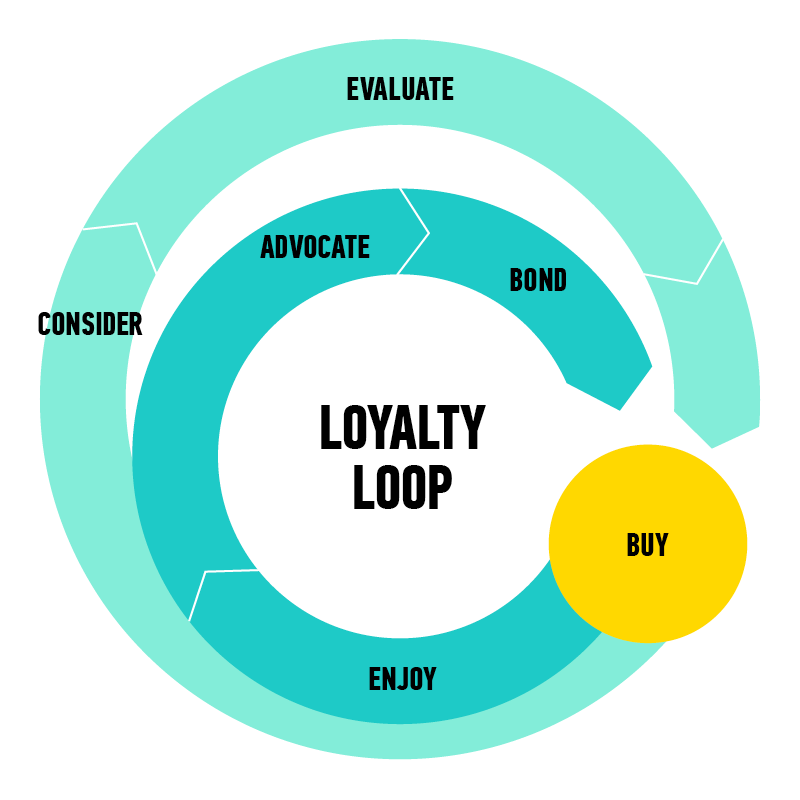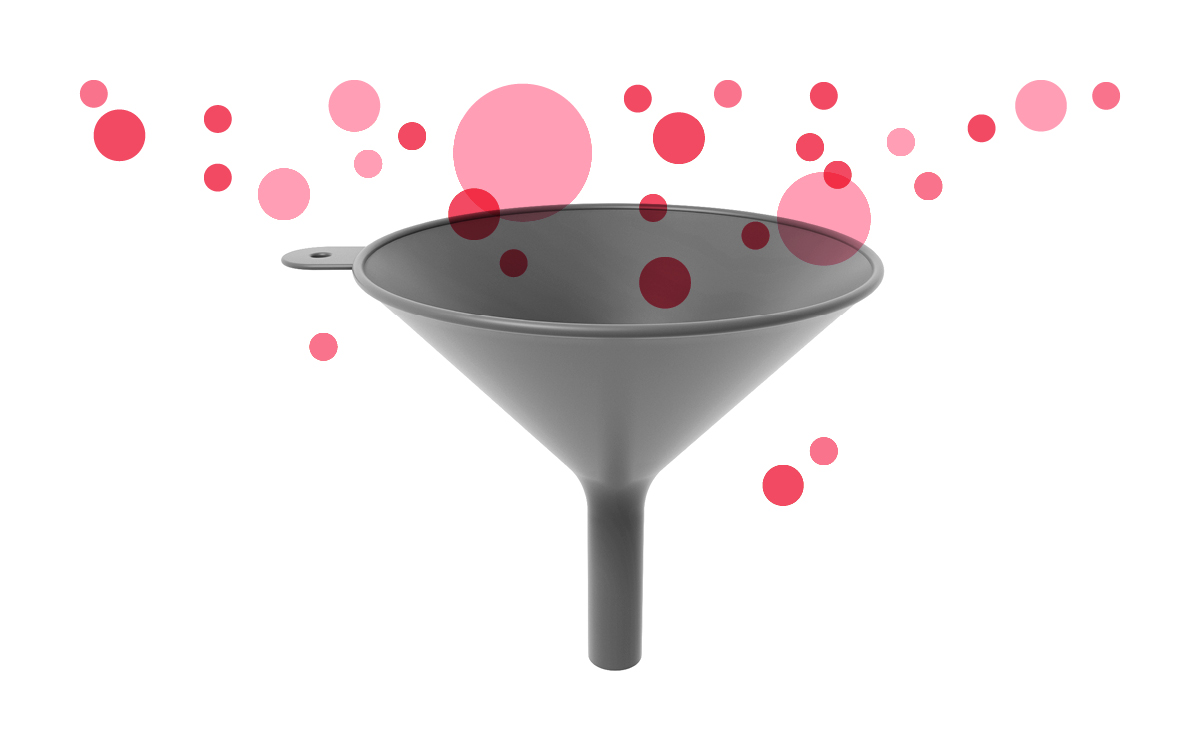During the past few decades, the marketing funnel served as the primary model for how people learn about a product, decide to buy, and (hopefully) become loyal customers, helping spread the word to others.
The Marketing Funnel looks like this:

The customer becomes aware of the product through advertising or word of mouth. They then consider that brand along with other similar products available. They develop an intent to buy, and eventually purchase the product. If the customer is happy with the product, sales experience, customer service, and other aspects of their experience, they can become loyal customers, and vocal advocates of the brand.
However, it’s been clear for some time that the marketing funnel is too simplistic. A customer rarely takes such a linear journey as there are multiple touch points during a customer’s decision and reevaluation process.
McKinsey & Company, a worldwide management consulting firm, has developed a more sophisticated model that better defines a consumer’s ongoing experience with a brand. Even after the customer makes the decision to buy, they continue to have interactions with the company that can affect their loyalty – either positively or negatively.
Enter the Loyalty Loop:

A trigger informs the customer that the brand is an option. This elicits an initial consideration set, which is when the customer begins to think about the option. The customer then begins an active evaluation process, wherein they gather information and shop for comparable products. The customer then enters the moment of purchase, but unlike with the linear model, post-purchase experiences dictate whether the customer will return to buy again. It is an ongoing loop – the customer is always reevaluating their decision to continue using a brand.
This model accounts for experiences the customer has with the brand that affect their long-term loyalty after the initial purchase. In today’s age when every product has hoards of competitors, the loyalty loop is a more accurate picture of how the customer reevaluates their decision to buy again and again.
A multitude of things can affect the customer’s decision to purchase for the second, tenth, or fiftieth time. A competitor might be offering a lower price for a similar quality, the packaging might be more appealing, the quality might vary, the customer’s experience with customer service might impress or frustrate them, the documentation that comes with the product can help their ability to use it or hinder their enjoyment of it, and their continued exposure to your ad messages versus your competitors’ all factor into the customer’s continued decision to buy your brand.
Learning From the Loyalty Loop
What can the marketing professional take from the loyalty loop? It’s useful for managing the ongoing customer experience. This model allows you to collect data and get an accurate view of the customer’s position within the model at any given time.
The new model also lets marketing managers develop a content supply chain, according to McKinsey & Co. This is a chain of consistent messages delivered to the customer over the duration of your relationship that validates their decision to continue loyalty to your brand.
Each touch point your brand has with the customer must deliver a clear, consistent message. There are just too many chances out there for customers to identify with another brand, confuse your brand with a competitor’s, or simply decide they no longer wish to use the product.
Incorporating the loyalty loop means offering streamlined messages across media. Packaging is now an integral part of the overall marketing professional, so it must also offer a consistent brand image and messages consistent with the advertising. Customer service reps have to talk the talk, and distribution must walk the walk – all in the name of keeping the brand image alive, well, and attractive to the fickle customer.
Want to learn more about the new customer decision journey? Sign up for our 10-week or 1-week courses or check out upcoming workshops.
Check Out Our Customer Journey Mapping Workshop
